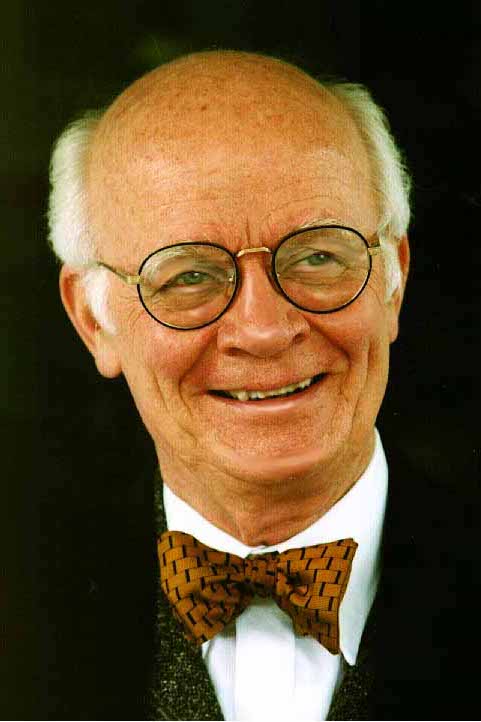Religion-in-public news recently featured a Pew poll that demonstrated how many Americans mix faiths. More on that in some other week. Recent news stories raise a screech question: Will there long be faiths to mix in America? “Faiths” here means bodies of believers, gathered in communities such as congregations. Has the United States begun to follow the overall pattern of decline in membership, attendance, activity, support, and visibility that is so patent in, say, Western Europe?
Forty years ago it was hard to find a seat at mass in Ireland or Quebec. Today it is harder to find mass-goers in countless parish churches. Now in America “Distance Early Warning” signals of decline almost across the board are becoming clouds on the horizon or cold winds already blowing. Yes, decline is selective: Mormons, Jehovah’s Witnesses, Assemblies of God, and the Church of God of Cleveland, Tennessee were “up” a bit or two bits in 2000, remaining the four exceptions in a field of scores of church bodies. Catholicism declined, but by less than one percent, bolstered as its ranks are by the continuing influx of Hispanics, who may make up one-third of the Roman flock. Claims that the conservative turn nurtured by Popes John Paul II and Benedict XVI would lead to revival are not realized.
Which brings up this week’s topic: Did “the conservative turn” much reported on, bragged about by the turners in that camp, and raising points of envy among non-growers prove durable? Dean Kelley’s 1972 Why Conservative Churches Are Growing, and a host of later sociological studies, turned into prescriptions that became manuals-of-arms in denominational conflicts, where gloaters and bashers derided “mainline,” “moderate,” and “liberal” churches as they suffered losses. Post-Kelley, the counsel against moderation was: Prosper by being strict, demanding, maybe fundamentalist, certainly conservative, ready to battle for “values.” There is enough to that counsel for it to be taken seriously, but some cultural trends in America have shown that that strategy for winning wars in denominations has limited pay-off values in the new America.
Three case studies: This year’s Yearbook of American and Canadian Churches chronicles a loss of 40,000 members in the formerly swaggering and fail-proof Southern Baptist Convention. Its 0.24 percent decline would be a mere ‘oops!’ in most church bodies, but it was a jolt that has induced panic among some Baptists, blame-fixing among others, and serious re-evaluation among the resilient in this largest Protestant body. The Lutheran Church-Missouri Synod, fourteenth in size and run by what moderates saw as a quasi-fundamentalist take-over party in the 1970s, always advertised that it was blessed because it was conservative and firm. Last year it lost 45,735 members, or 1.44 percent of the formerly faithful. More disturbing to conscientious chroniclers and planners was the word that average attendance at worship dropped from 165 to 155 in one year! Similarly, the Presbyterian Church in America (PCA) “lost numbers for the last year for the first time in its 37-year history,” despite its reliance on strategies chosen when its congregations seceded from a parent body.
Many “winning” conservatives in these and other bodies long enjoyed Schadenfreude, which meant that they rejoiced in the missteps or misfortunes of others. It would be unfortunate if the demeaned moderates and liberals, in a turn-about, enjoyed Schadenfreude in this round. They are all in the same culture, battling its trends, some perhaps wise enough to get serious, neither boasting or whining.
References:
“NCC’s 2009 Yearbook of American and Canadian Churches report decline in Catholic, Southern Baptist Membership,”
“PCA posts first-ever decline,” http://www.pcusa.org/pcnews/2009/09565.htm
“Missouri Synod Lutherans see falling numbers,” Christian Century, December 15
“Baptists Shrink: Once Booming, the Southern Baptist Convention tries to rekindle growth,” Andrew M. Manis, Religion in the News.
Republished from Sightings with permission of the University of Chicago Divinity School.

The Fairfax M. Cone Distinguished Service Professor Emeritus at the University of Chicago, Dr. Martin E. Marty taught there for 35 years, chiefly in the Divinity School, where the Martin Marty Center for the Public Understanding of Religion was founded and to whose weekly column Sightings he contributed. Ordained a Lutheran pastor in 1952, he served from 1956-2013 as a columnist and senior editor at the Christian Century and authored more than 60 books including Righteous Empire, for which he won the National Book Award; the three-volume Modern American Religion; The One and the Many: America’s Search for the Common Good; The Mystery of the Child; Building Cultures of Trust; The Christian World: A Global History; Martin Luther (in the “Penguin Lives” series); and Dietrich Bonhoeffer’s Letters and Papers from Prison: A Biography.
